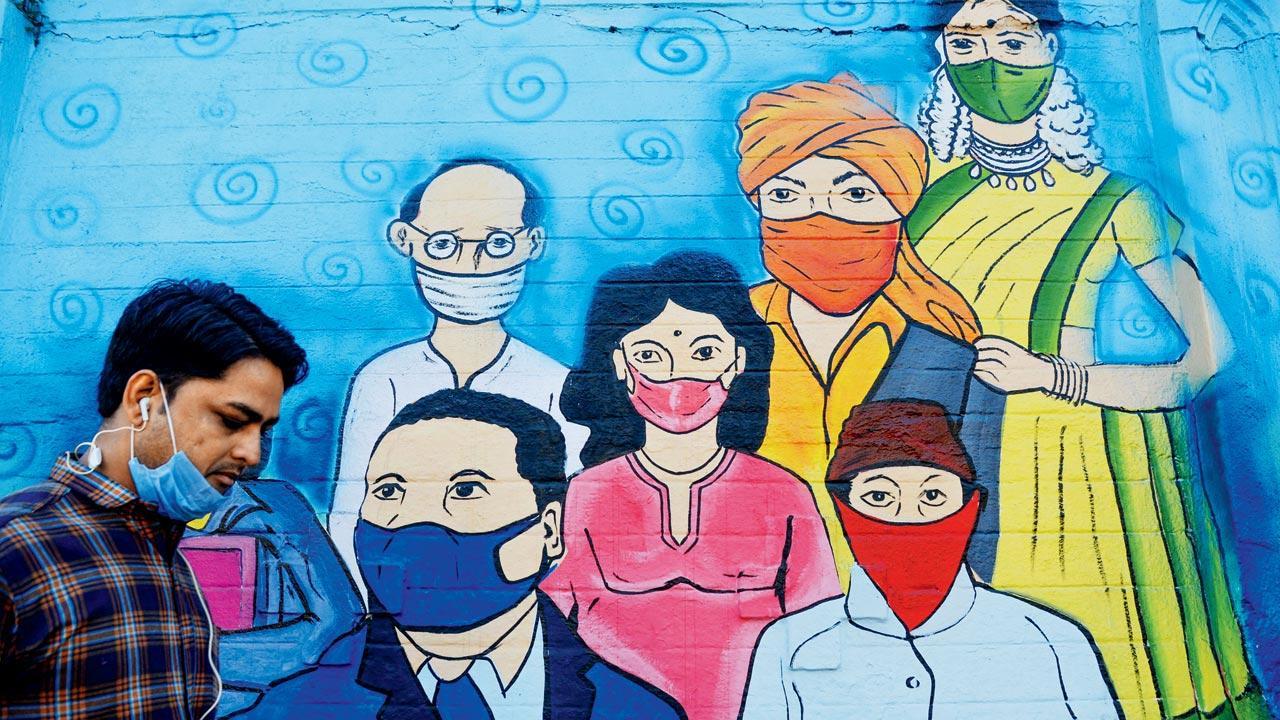Advisories don’t work, rules do. Maharashtra’s decision to make mask-wearing optional could have the public believe that the pandemic is over, and that is dangerous, says a senior national task force member

A pedestrian with his mask lowered walks past a wall mural made to create awareness among citizens to follow COVID-19 safety protocol in Mumbai. Starting April 2, mask use in public places will not be mandatory in Maharashtra. Pic/Getty Images
Earlier this week, Elizabeth T Jacobs, a cancer and chronic disease epidemiologist at the Mel and Enid Zuckerman College of Public Health and the University of Arizona Cancer Centre, lashed out on Twitter at the Centers for Disease Control and Prevention, the national public health agency of the United States, for its new “mask guidance”. The CDC had unveiled updated COVID-19 guidelines for masking, based on three metrics—the number of new COVID-19 cases in an area, the share of hospital beds being used, and hospital admissions. Jacobs argued that she was lucky that she could afford an RTPCR test that allowed her to put some mitigation in place so as not to infect others.. “But there are so many who are not. These are the people that the government wants us to forget. I refuse to do so,” she tweeted.
 Subscribe today by clicking the link and stay updated with the latest news!" Click here!
Subscribe today by clicking the link and stay updated with the latest news!" Click here!





